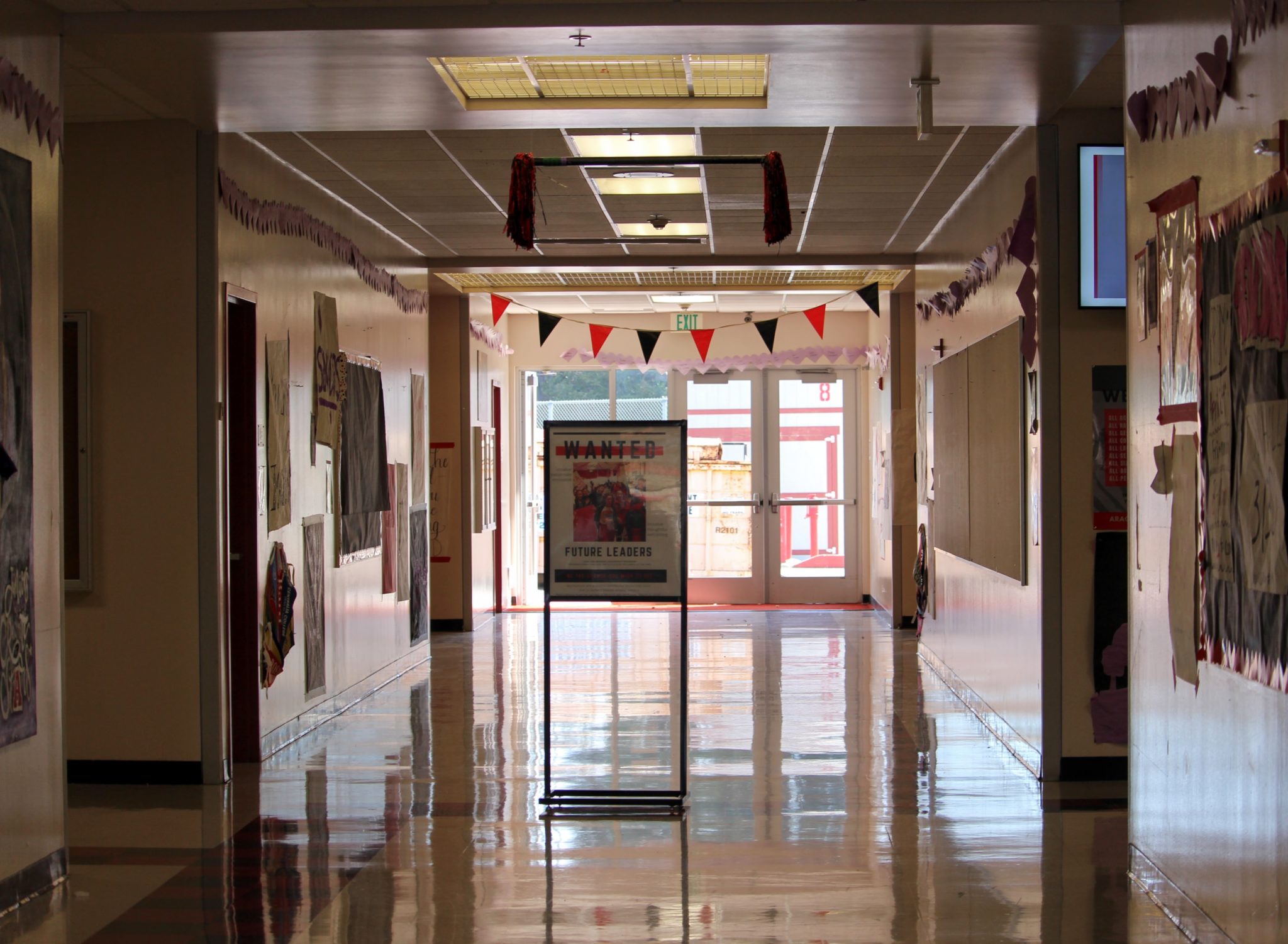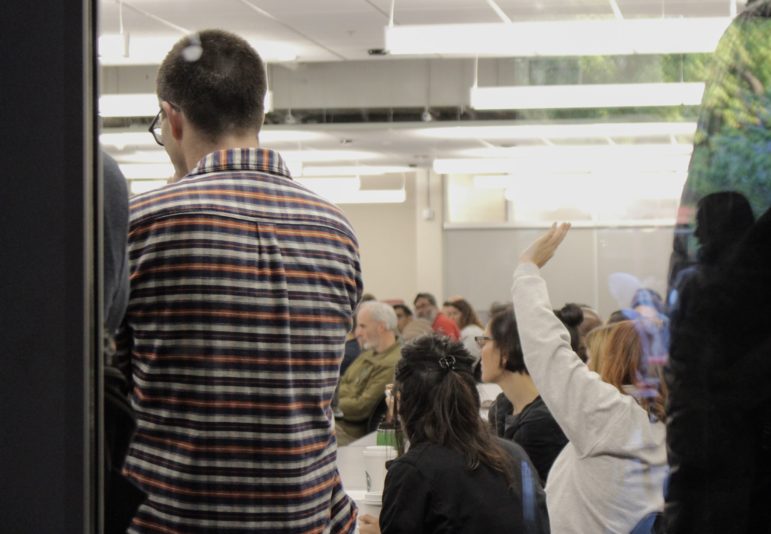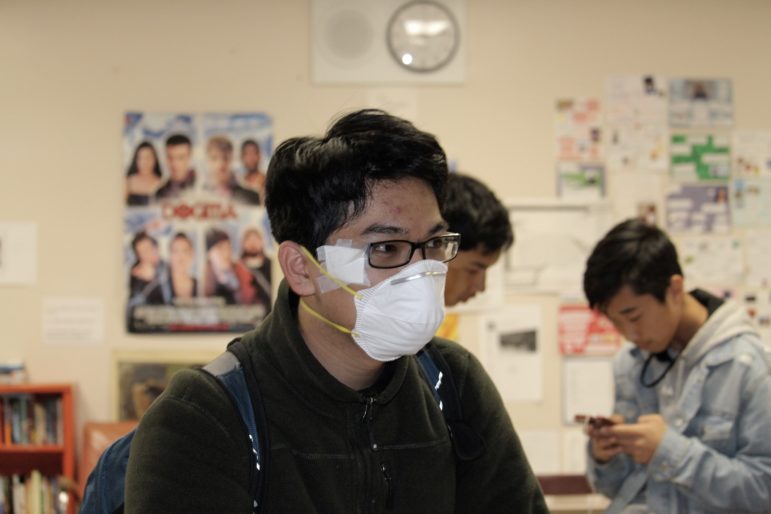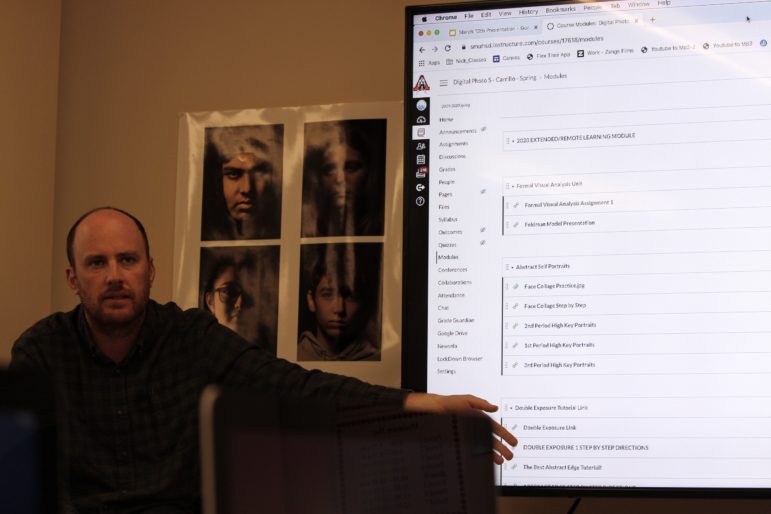
Last Updated: March 31, 2020 at 6:51 p.m.
According to California’s state superintendent, schools are not expected to reopen for the remainder of this academic year. On Tuesday, the SF Chronicle reported on a letter they had obtained written by the Superintendent addressed to county officials, which acknowledged that the coronavirus crisis would limit students’ learning to remote education for the rest of the year. The memo was written given social distancing regulations and pressing safety concerns as the pandemic grows.
On March 12, the San Mateo Union High School District held a vote at a board of trustees meeting unanimously voted to temporarily close schools in order to limit the spread of COVID-19. The Board initially decided to close schools until March 29, with a reevaluation after the first week of online classes to see if there was a need for a third week. However, San Mateo County passed a resolution requiring all schools under their jurisdiction to remain closed for at least three weeks, then they became one of six counties to extend school closures through the beginning of May. Now, a statewide mandate has made it so that all schools in California won’t be back in session until fall.

Superintendent Kevin Skelly was initially hesitant to close schools, but as information about the COVID-19 spread and parents became wary of possible exposure on campuses, the situation was reassessed Although most young people are not directly at risk for fatal cases of the disease, there is a possibility of transmission to those more vulnerable.
Leading up to the full closure of Aragon’s campus, Open House, various extracurricular activities, field trips and club sports were cancelled. These decisions were influenced by recommendations from the CDC and state officials.
On Monday, March 16, San Francisco, Santa Clara, San Mateo, Marin, Contra Costa and Alameda counties announced orders for a “shelter in place.” The announcement pressures all residents to stay within their homes, unless they must leave for essential business, from March 17 to April 7. This shelter in place was then extended through April 19.
City and County government services, such as police stations, hospitals, jails and city offices remain open. Public transportation, BART and Caltrain, are still open, but limited to essential required travel only. Gas stations, pharmacies, banks, convenience and grocery stores also remain open. Restaurants are only open for take-out or delivery.
The order assumes that citizens will comply due to their civic duty and will follow the order for the greater good of the community, according to San Mateo County. Failure to comply will be punished with jail or fine, according to San Mateo County. There is no requirement of proof that residents are allowed outside.
San Mateo County advises purchasing normal quantities of food and necessities, as those will still be available for purchase during the “shelter in place.”
“Changing our actions for a short period of time will save the life of one or more people you know,” Gov. Newsom said. “Each of us has extraordinary power to slow the spread of this disease. Not holding that concert or community event can have cascading effects — saving dozens of lives and preserving critical health care resources that your family may need a month from now.”
After briefing students on how school will proceed on Friday, March 13, teachers will be at school on Monday, March 16 to further refine plans to cater to online courses, Skelly said. Both students and teachers will not be permitted to return to school sites after March 16 in order to sanitize campuses, according to Skelly.
Teachers will have to use online tools like Canvas, Screencastify and conference calls to instruct students, some of whom are currently preparing for AP tests. Returning to school in mid-April, just weeks before AP students are slated to take mock exams, will undoubtedly affect teachers’ abilities to administer preparatory work.
Tthe administration has taken measures to accommodate students who do not have resources at home such as lending out chromebooks and wifi hotspots. Students took a survey during third period and proceeded to check out items from the library throughout the day. Moreover, students are able to pick up breakfast or lunch at either San Mateo or Mills High Schools, or College Park, Foster City, Laurel and Lead Elementary Schools if they were regularly dependent on free or reduced lunch programs during school days.
Most SMUHSD staff and administrators are concerned about how the closures will affect the quality of teaching.
“[Online learning] is not a substitute for in class learning. My concern is that there are going to be borderline students who are going to miss out on their ability to learn or to keep up on their learning for a number of reasons, and that can be that can be maturity [or the] ability to focus on class[work],” said physics teacher Steve Ratto.
Even though schools are closing, there’s no guarantee that students will refrain from gatherings as to not contract the virus. It’s possible that students will continue to congregate in large groups instead of self-quarantining, which could continue to transmit the disease in San Mateo County.

“I just hope [that] kids, when they’re not around us, do what they’re supposed to do in terms of cleaning, not going to the mall, sharing food and breathing all over each other,” Skelly said.
“I just hope [that] kids, when they’re not around us, do what they’re supposed to do in terms of cleaning, not going to the mall, sharing food and breathing all over each other”
Other teachers, especially those who were expecting time to administer mock APs or teachers whose lesson plans do not translate well into online mediums, are frustrated with the lengthy closing.
“I don’t want to encourage group work [or] social interaction, so I’m not forcing people to photograph portraits or models during this time,” said Art of Video and Digital Photography teacher Nicholas Carillo.
Instead, Art of Video and Digital Photography classes will be doing at-home reflective work on contemporary artists and responding to prompts through Canvas discussions.

Without consistent classroom time, Orchestra and Choir director John Chen had to quickly think of a solution. While upcoming music festivals were cancelled for all music groups, there has been no clarity on the status of spring concerts, so Chen feels that normalcy is necessary.
“[Band director Kevin Gallagher] and I are going to get together to discuss things. We’re going to try to get the whole district’s music teachers together to figure out what we are doing,” Chen said. “I think this is the most impactive because performing ensembles are classes that really need to meet to have normalcy, but we’re gonna make the best out of it.”
Chen is planning to assign music playing or singing assignments to keep up with ensemble repertoire, completed as online video uploads, as stated in an email sent to students before the shutdown was confirmed. Written music assignments such as score marking, theory analysis and repertoire research may also become assignments.
“I have concerns about keeping up the rigor … [and] how much true learning can happen,” said AP English teacher Victoria Daniel. “I feel like we will be practicing things we already know rather than adding to what we know. I don’t think that computers or any kind of online courses will ever replace what happens in an English classroom among students and a teacher. … As a humanities teacher, part of my job is human interaction.”
While students agree with the measures taken to close school, several individuals have expressed frustration over adapting to the new circumstances.
“I thought that I would be excited about it, but I was kind of upset because I realized that we still have obligations to fulfill,” said junior Albena Goulisheva. “The social aspect of school that many people enjoyed is just gone, and it’s really overwhelming to know that there’s no structure for anything.”
“The social aspect of school that many people enjoyed is just gone, and it’s really overwhelming to know that there’s no structure for anything”
Due to the extended closure, several seniors are also worried about missing out on high school experiences in their last semester.
“Most of [the seniors] including me are pretty concerned with prom or graduation being canceled because we are just looking forward to spending as much time with our friends,” said senior Janet Chen. “Since it is our last year at Aragon we are all pretty upset that we are not able to enjoy our time before we go off to college and instead we have to worry about getting the virus or our families getting the virus [in addition to] waiting for college decisions to come back.”
SMUHSD schools are expected to be back in session on May 4, but announcements to follow may result in students not returning until next academic year. It’s possible that the return of classes may even be delayed in the fall.
Additional reporting by Kayla Shiao, Josette Thornhill, Srimaye Samudrala, Kayla Li and Isabella Krzesniak.



